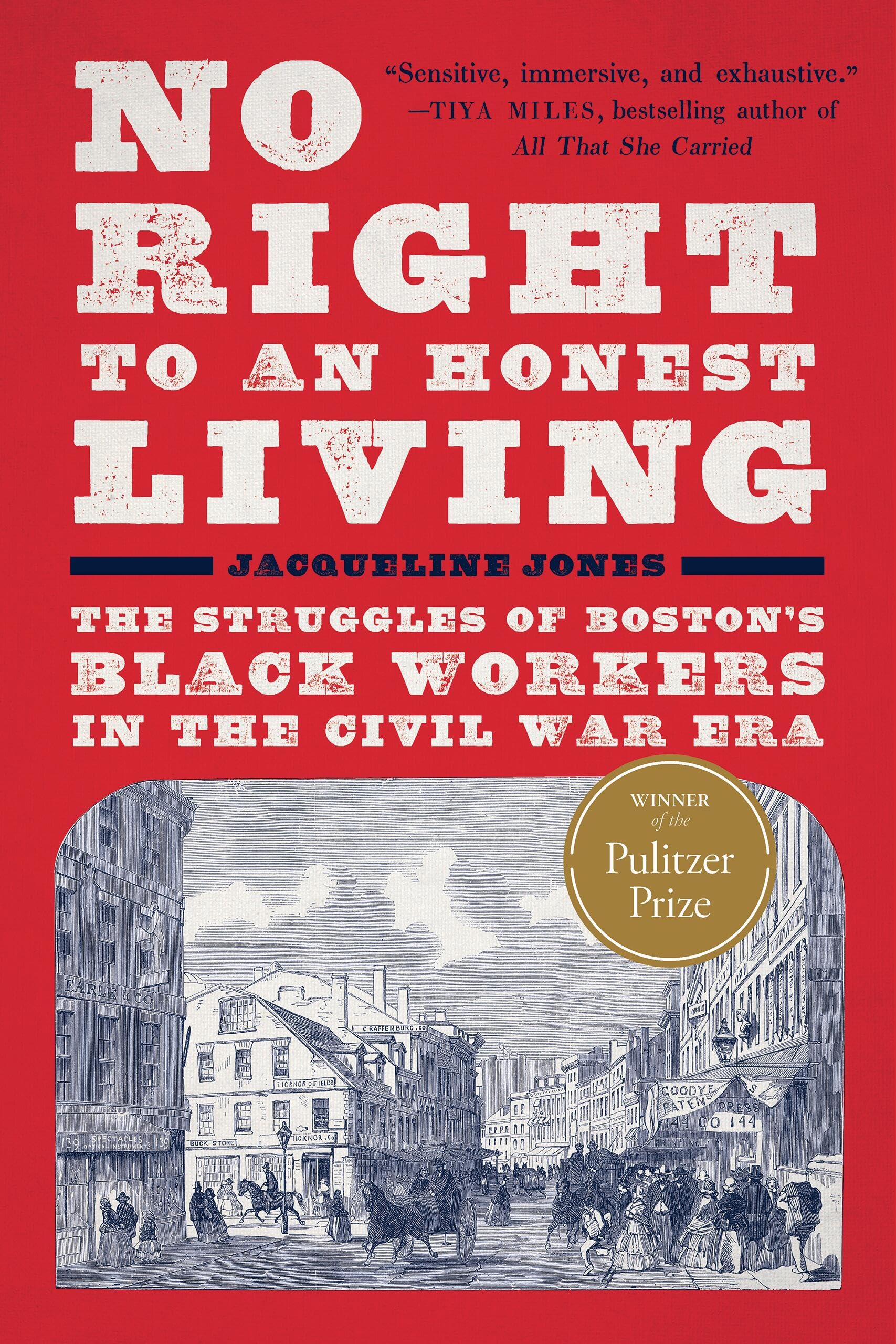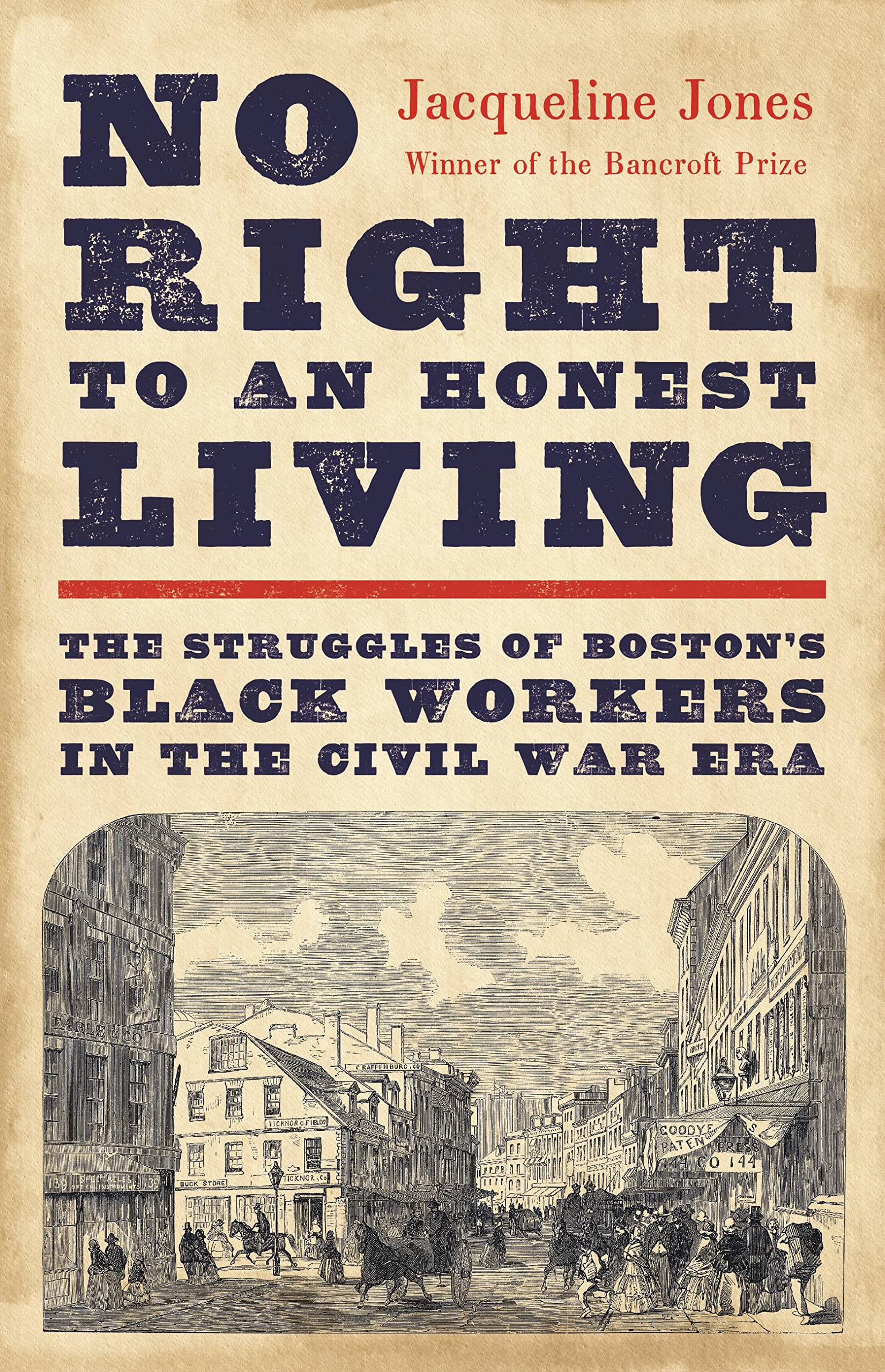WINNER OF THE PULITZER PRIZE IN HISTORY * A “sensitive, immersive, and exhaustive” portrait of Black workers and white hypocrisy in nineteenth-century Boston, from “a gifted practitioner of labor history and urban history” (Tiya Miles, National Book Award-winning author of All That She Carried) Impassioned antislavery rhetoric made antebellum Boston famous as the nation’s hub of radical abolitionism. In fact, however, the city was far from a beacon of equality. In No Right to an Honest Living, historian Jacqueline Jones reveals how Boston was the United States writ small: a place where the soaring rhetoric of egalitarianism was easy, but justice in the workplace was elusive. Before, during, and after the Civil War, white abolitionists and Republicans refused to secure equal employment opportunity for Black Bostonians, condemning most of them to poverty. Still, Jones finds, some Black entrepreneurs ingeniously created their own jobs and forged their own career paths. Highlighting the everyday struggles of ordinary Black workers, this Pulitzer Prize-winning book shows how injustice in the workplace prevented Boston–and the United States–from securing true equality for all.
No Right to An Honest Living (Winner of the Pulitzer Prize): The Struggles of Boston’s Black Workers in the Civil War Era
$12.24
This Pulitzer Prize-winning book supports studies in American history, economics, and social studies by detailing the labor struggles of Black workers.
Additional information
| Weight | 0.476 lbs |
|---|---|
| Dimensions | 13.8 × 3.5 × 21 in |
No Right to An Honest Living (Winner of the Pulitzer Prize): The Struggles of Boston’s Black Workers in the Civil War Era
$29.07
This book provides a historical analysis of labor and racial inequality, enriching studies in American history, economics, and sociology.
WINNER OF THE PULITZER PRIZE IN HISTORY A “sensitive, immersive, and exhaustive” portrait of Black workers and white hypocrisy in nineteenth-century Boston, from “a gifted practitioner of labor history and urban history” (Tiya Miles, National Book Award-winning author of All That She Carried) Impassioned antislavery rhetoric made antebellum Boston famous as the nation’s hub of radical abolitionism. In fact, however, the city was far from a beacon of equality. In No Right to an Honest Living, historian Jacqueline Jones reveals how Boston was the United States writ small: a place where the soaring rhetoric of egalitarianism was easy, but justice in the workplace was elusive. Before, during, and after the Civil War, white abolitionists and Republicans refused to secure equal employment opportunity for Black Bostonians, condemning most of them to poverty. Still, Jones finds, some Black entrepreneurs ingeniously created their own jobs and forged their own career paths. Highlighting the everyday struggles of ordinary Black workers, this book shows how injustice in the workplace prevented Boston–and the United States–from securing true equality for all.
Additional information
| Weight | 0.794 lbs |
|---|---|
| Dimensions | 16.6 × 4.8 × 24.4 in |
Reviews
There are no reviews yet.











Reviews
There are no reviews yet.